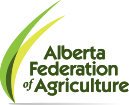AFA Policy
As a grassroots organization, our advocacy is driven each year by resolutions put forth by our members during our AGM in January. Here, they are debated by the membership at large and, if passed, a resolution becomes AFA policy. At this point, AFA staff and the Board of Directors work together to take action on these policies by identifying the advocacy measures that are most appropriate for each policy.
For helpful hints on drafting and submitting a resolution please see our AFA Resolution Checklist and Resolution Worksheet for formatting tips.
